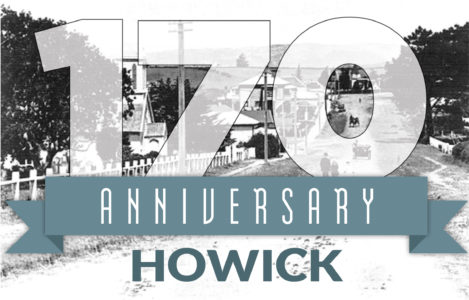
Historian Alan la Roche continues the series marking the area’s 170th anniversary this year
After 20 years as front-line soldiers for the British Army in Afghanistan, India, or China, once they reached 40 years of age they were dismissed as too old to perform military duties. But retiring to Ireland during the Great Potato Famine or the unhealthy English Midlands’ industrial towns was not attractive.
When they saw an advertisement in military barracks, many immediately enrolled for a free passage with food provided to New Zealand for their wife and family, with a two-roomed cottage ready on arrival on an acre of land that would soon be theirs, along with a church and school. Many Auckland newspapers debated – were Fencibles, soldiers or settlers? Generally they were seen as “old settlers”.
Governor Sir George Grey, asked Earl Grey, formerly Lord Howick, as Minister of War and the Colonies, for 2500 soldiers to protect New Zealand. Earl Grey wanted a cheaper option which was to send about 500 old battle-weary soldiers who could act in an emergency but New Zealand needed settlers to secure the country as British. Howick Fencibles saw no military action.
They were a low-cost part-time Home-Guard. After seven years from leaving their homes in Britain , the cottage and acre of land became theirs and they became full-time settlers.
The 12 days military service “training” was seen as a waste of time, an unpaid nuisance. One Fencible missed one parade and was sent to prison for four months hard labour under the Mutiny and Articles of War Act.
After working a 60 hour, six day working week (building roads) a military enforced muster-parade and inspection at the site of today’s Prospect of Howick Hotel, they then marched to the Anglican or Catholic Church, where their wife and children were expected to attend. This took most of Sunday mornings and was grudgingly performed.
They would like to spend a little time creating a vegetable garden, clearing their land, bringing in fuel for the fire, drawing water and repairing their cottage with their children.
About 50 Howick Fencibles failed to attend twice, then their cottage and acre was confiscated and passage money for him and his family, over thirty pounds, was taken out of his pension. Most had no savings. Some became destitute, living in poverty due to these harsh regulations. To complain could result in corporal punishment such as flogging.
Officers were of a different class. They were much younger than the Fencibles. They were well paid, had a large two-storied homestead with servants, on at least forty acres of prime land. Captains received three hundred pounds wages per year. They could sell their homestead and farmland after their seven year term of service.
Fencibles had to wear their uniform every Sunday. It was dark navy-blue with scarlet-red collar, cuffs and epaulettes and a stripe down their trousers. Their senior officer described the uniform “as simple, serviceable and soldier-like”. The uniform was nothing like a regular soldier’s uniform in Britain.
The Fencibles uniform in New Zealand was similar to a policeman or fireman uniform. Soldiers of the British Army line Regiments had a “dandy” uniform with high fashion over-ornamented hats and brightly coloured tunics created to give “pride in their regiment”. But they were easy targets for the enemy even if miles away. It was nothing like a Fencibles uniform.
Most authorities considered Fencibles as settlers who could possibly assist with Home Guard like activities if required. They were not required. But they were the founding pioneer families of Howick.
- Alan La Roche, Howick Historian










